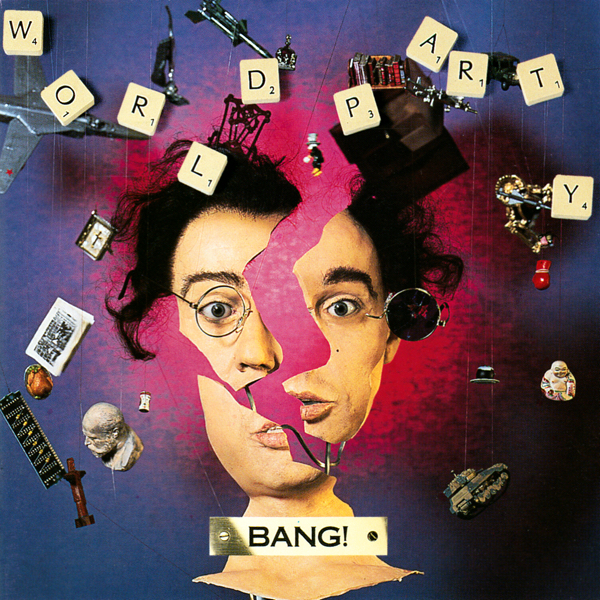Sometimes you just have to be in the right place at the right time. Having served time in The Waterboys during their most consistently good period, Karl Wallinger realised that his musical ambitions would inevitably find themselves at loggerheads with Mike Scott’s own at some point in the future, so he had left that band to strike out as a solo artist under the name World Party. Two albums of pleasing retro-pop followed, with 1990’s Goodbye Jumbo receiving no small amount of acclaim. By early 1993 World Party were officially a band, with Wallinger having recruited a Bootleg Beatle and an Icicle Work as bandmates before setting to work on Bang.
In the wake of the plaudit gathering, modestly charting, Goodbye Jumbo, expectations for World Party’s follow up album were high, especially given the increasing predilection for guitar based music to have a retro focus, and Wallinger being something of a dab-hand with a Beatlesque melody. Not that classic rock was the only thing informing Wallinger’s muse. More than any other World Party album, Bang sees Wallinger embrace his ambition to sound as much like Prince as possible, and in addition to that, there were more than a few beats and samples dotted throughout the individual songs.
Not that Wallinger had any intention of scaring his fans away. Opener “Kingdom Come” was a refreshingly breezy pop number, albeit one that was wrapped around an ecology focused lyric, and it hinted that Wallinger was still on form in regards to being one of the UK’s most interesting, yet underrated, songsmiths. This is absolutely confirmed when you hear “Is It Like Today”, one of the best songs World Party ever released, and something of an overlooked guitar-pop gem when the music of the early 90s is considered. Intelligent, mature and tuneful, it hinted that World Party were well positioned to become one of the key pop acts for the rest of the 90s, something which would only be aided by the music press getting behind the beast that would become Britpop.
The thing is, Bang was not an easy album to pigeonhole, in fact it’s an album where you can hear Wallinger and his bandmates struggle to contain its tendency to try and be an all-encompassing monument to the history of pop music. You really can’t fault the scale of Bang’s ambition, but it also does mean that of all World Party’s albums, it is the least coherent, which given it was the band’s highest charting, is something of a shame. The thing is, there’s the potential of a really, really good album locked within Bang’s songs, it just lacked that ability to focus its efforts to become a great retro guitar-pop album, or a full on sample and beat heavy state of the world address from one of the premier grown up pop acts of the era. In trying to do too much, it just stretches itself a little too thin.
If nothing else, Bang gave notice that World Party were a force for good in an increasingly ill tempered music scene. At a time when differences between musical styles and even acts within the same genre were gaining increasing focus, Bang demonstrated that music didn’t need to have such blinkered vision, and that by widening your horizons, pop music could be anything you wanted it to be. It was a manifesto for unity rather than narrow-minded ‘my band is better than your band’ petty one-upmanship, and as such, displayed something that the music industry of the 90s failed to aspire to be.














[…] READ: A nice look back at the album on Backseat Mafia […]